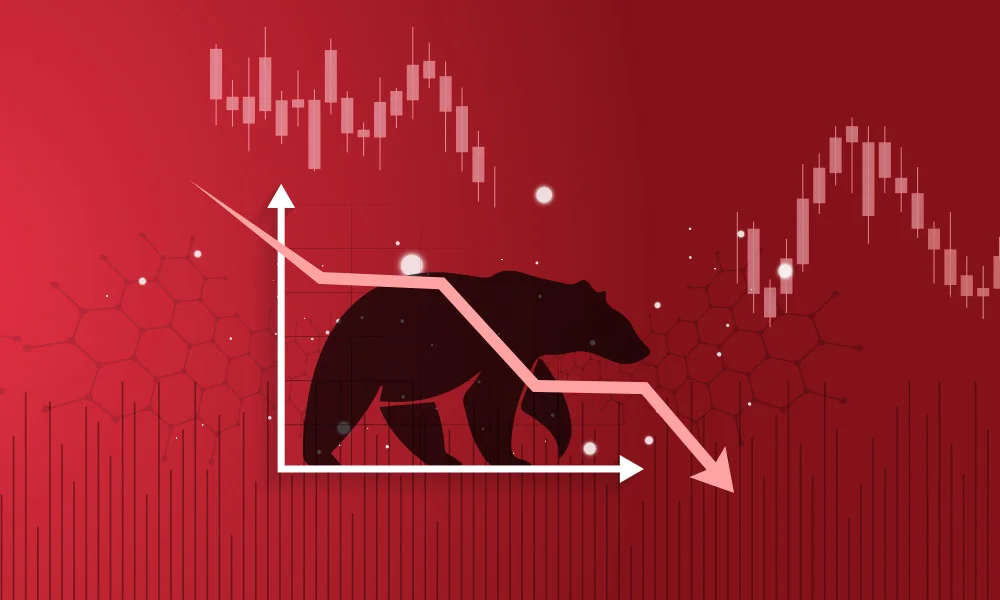The Truth About Bear Markets. Are We Headed For a Recession?
You’ve probably heard the terms “Bear Market” and “Bull Market” before, but do you know what they are and what they mean for you and your investments?
Bull vs. Bear – What’s the difference?
In the simplest terms, a bull market is characterized as a time where stock prices on major market indexes, like the S&P 500, S&P/TSX Composite or Dow Jones, rise by 20% or more over an extended period of time. It’s a time when the economy is booming and there is general optimism among consumers and investors. When asset values rise, consumers tend to spend more money, which in turn creates more economic expansion and can further bolster the bull market.
On the other hand, a bear market is the complete opposite of a bull market. It’s a time when stock prices on major market indexes fall by at least 20%. Bear markets are generally times of economic pessimism and lower consumer spending. During a bear market, investors generally protect their savings, which can lead to more money being pulled out of the stock market, driving stock prices down even further. Canadians are already seeing stock prices falling, inflation rising, and economists fear an approaching recession.
History of Canadian bear markets
Matt Lundy of The Globe and Mail wrote, “Since the 1960s, the average S&P 500 bear market has lasted 13 months, with an average decline of 35 per cent. The figures are nearly identical for Canada.” Though bear markets are an expected occurrence, such steep downturns are actually fairly rare. When you examine the total return of the S&P/TSX Composite index from 1957 to the end of 2021, there have been nine Canadian bear markets in the last 65 years.
The current market yields the biggest drop in TSX Financials seen since June 11, 2020 with all five of Canada’s top banks in decline, leading everything even lower and putting them in “bear market territory” from the peaks seen in 2022. The U.S. has been in a bear market since June 13, 2022 as the S&P 500 index ended 21.8% below its record closing high in January.
Does this mean a recession is on the horizon?
Kristina Hooper, Invesco’s chief global market strategist, stated in an interview with Wealth Professional that, “even though the last three S&P 500 bear markets were followed by recessions, a bear market does not necessarily foreshadow a recession. It didn’t after the 1961, 1966 or 1987 bear markets.” A recession is characterized as a period of temporary economic decline during which trade and industrial activity are reduced, generally identified by a fall in Gross Domestic Product (GDP) in two successive quarters.
Statistics Canada reports that the Canadian real GDP grew 0.8% in the first quarter of 2022 which is the third consecutive quarterly increase reported. Unfortunately, according to James Orlando, CFA and Director & Senior Economist at TD Economics, “there is risk that Canada’s recent outperformance relative to its global peers may be coming to an end” as highlighted in TD’s recent Quarterly Economic Forecast.
Forecasting
Some economists are forecasting that the North American economy as a whole “could be pushed into a recession by next year, and the impact would likely be more pronounced in Canada than in the U.S.” The effects of the Bank of Canada’s interest rate hikes are already affecting the housing market. As interest rates rise, the cost of borrowing money becomes more expensive. “Sales activity continues to slow in the face of rising interest rates and uncertainty. The cost of borrowing has overtaken supply as the dominant factor affecting housing markets at the moment,” said Jill Oudil, Chair of the Canadian Real Estate Association. Since a greater percentage of Canada’s GDP growth is reliant on the housing market (10% in Canada vs. <5% in the U.S.), the impact of a recession and the resulting drawdown on GDP growth would have greater economic consequences in Canada.
Even though the housing market is slowing down, we are still in dire need of more housing supply. With the cost of borrowing on the rise, more Canadians are turning away from single-family homes to fulfill their housing needs. The development of multi-residential properties, like Equiton’s Sandstones Condo, is essential if we hope to start balancing the supply-demand scales.
A counterweight to market downturns
With a bear market and potential recession, the outlook may seem bleak for investors. Luckily, there are still things you can do to position yourself for long-term financial health. Equiton’s private real estate solutions aren’t traded on public markets and thus aren’t subject to the wild swings of the stock market. This allows for better downside protection and provides a much-needed hedge against inflation. The fact that Private Canadian Apartments1 haven’t had a negative annual return in the last 35 years, even during the last 5 bear markets, clearly demonstrates that they’re an effective counterweight to market downturns.
Protect and build your investments. Contact Equiton today to learn more about how our private real estate solutions can provide a counterweight to market downturns and why private real estate has the reputation of being recession-proof.
[1] Private Canadian Apartments = MSCI/REALPAC Canada Quarterly Property Fund Index- Residential, MSCI Real Estate Analytics Portal– Accessed July 11, 2022




